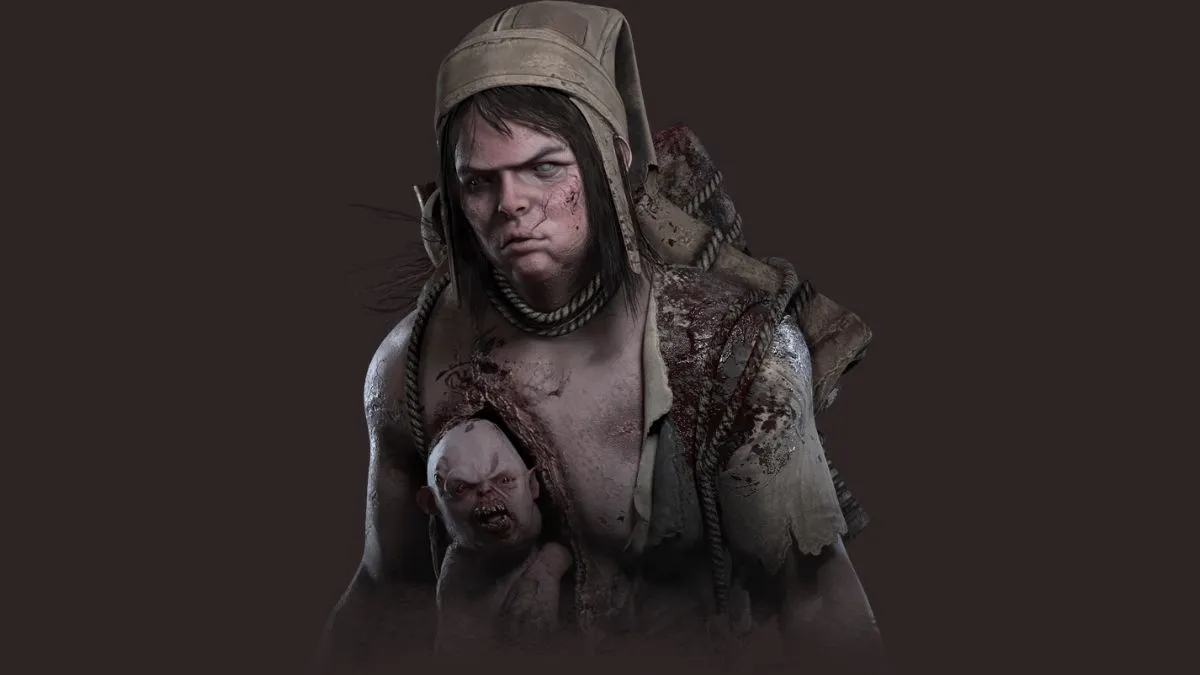Even if it is jolly good fun
Earlier this week, Allistair suggested that violence is integral to immersion, that it could draw us into games that lack it even more. This was in response to a presentation given by serial pompous twit and occasional truth-sayer, David Cage. While the spirit of his article — that violence is a facet of gaming we shouldn’t dismiss or overlook — is one I very much agree with, I think that he might put too much stock in it.
Violence undoubtedly has its role in our beloved hobby. It’s the simplest, most obvious form of conflict, and that often drives games forward. It’s also a good way to punctuate drama and tension, emphasizing key moments in a game. Then there’s the simple fact that it can be a hell of a lot of fun, while also providing the sort of catharsis many seek as they unwind with their current game of choice.
I will not deny that violence is compelling, and even important. So if you’re expecting a rambling condemnation of it, you’ve come to the wrong place. If, instead, you’ve come for an equally rambling explanation of why violence isn’t necessary, then you’re probably not lost.

What do you do when handed a gun or, indeed, any sort of weapon? I imagine that the most obvious answer would be to fire it, to swing it, to generally pretend to engage in some sort of combat. That certainly makes sense. A weapon is a tool, and its purpose is to cause bodily harm. So, when you are given a weapon in a game, you’re clearly being given a goal: go kill stuff.
Isn’t that a bit boring, though? Games are meant to engage our imaginations, and after playing countless games about shooting people in the face or dismembering them with axes, I can’t think of anything less imaginative.
I own exactly one firearm. It’s an American Civil War rifle and it couldn’t shoot anything even if I wanted it to. When I was given it 17 years ago, my first instinct wasn’t to pretend to fire it. Instead, I asked my dad, precociously, if I could take it apart. I’d never held a gun before, let alone one that was so steeped in history, so I wanted to know what made it work.
He said no, of course, but that didn’t stop me from fantasizing about investigating its mechanisms, cataloging each part, and learning about how it was put together. It even compelled me to read up on the American Civil War, a piece of history not really dealt with in the Scottish curriculum, and I became fascinated with the whole period.
So here was a gun, an old gun, that had, if not actually caused any death, at least been designed with it in mind, and it was inspiring me to educate myself. I wasn’t imagining myself as a soldier, I wasn’t pretending to shoot anyone, if anything, I was pretending to be a gunsmith and a historian.
I did promise rambling, didn’t I? There’s a point to this, though. When I’m given a gun in a game, I know what I’m meant to do with it, I know what the game’s telling me I need to use it for, but that’s just about the last thing I actually want to do. Being forced into violence feels restrictive, and can sometimes even lead to being drawn out of the experience entirely when I realize I have very little control over the events as they play out. I can point and I can shoot.

I can still enjoy carving buggers up with swords and chainsaws, and when I see blood spurting out a neck stump it might elicit a cheeky grin, but violence on its own does not make the overall experience any more immersive than any other tactile action, like mixing an alchemical concoction or petting a puppy, because 9 times out of 10, I could imagine a much more creative use for my time. In a game like Anarchy Reigns, it works because the game is built around combat, there’s an appropriate context, but in titles with subtler conflict, all it would do is remind us that we are in a game. It would be like the awkward multiplayer in Spec Ops: The Line, something that existed merely to tick a box.
Allistair suggested that violence lends itself to a more immersive journey because of the obvious and immediate feedback. You fire a gun, it goes boom, there’s recoil, you see the impact of the bullet as it strikes a wall or flesh. It’s loud, bombastic, and there’s plenty of visual stimuli. It’s also what we expect to happen when we fire a gun. Yet most violent games will have you fire a gun so many times that you stop even noticing it. When you’ve killed countless people, burned through thousands of clips, perhaps millions of bullets, is it still as immersive as the first time you pulled the trigger?
There are ways to fix the aforementioned issue of killing so many people and doing the same action so many times, of course. Metro 2033 made every bullet count, other titles like the S.T.A.L.K.E.R. series gave players guns that were unreliable, and last year’s Chivalry emphasized the physical trauma caused by hacking and slashing at foes with agonizing screams, heads rolling off shoulders, and bone, blood, and assorted viscera covering the battlefield. Unfortunately, this is a lot less common than violence without meaningful interactions with either the weapons or the victims.
As our library of games with aggressive tendencies increases, we are being trained to accept violence as part and parcel of the general videogame experience. That, I think, is why Allistair believes it to be as imperative as he does. It’s become almost synonymous with the medium. That does not mean it has to be that way.

An old flatmate of mine used to avoid any game that didn’t feature killing. In games that did feature it, he lamented the times when he was unable to murder any NPCs. When he played Fallout: New Vegas he didn’t do a single quest in Goodsprings, because the moment he got control of his character, he slaughtered every single living thing in the village.
His desire to put everything in an early grave meant that he missed a vast amount of dialogue, quests, items, experience and the general flavor that makes Fallout so fun. Now, I wouldn’t for a minute suggest that he was “playing the game wrong,” as it was designed to allow players to experience it that way, but he was definitely ignoring the game itself in favor of the violence found therein.
That, I feel, is what’s happening to all of us when we put so much emphasis on violence. We start to forget how much fun it is to do things that don’t involve death and dismemberment. We’re basically encouraging lazy design. Where’s the impetus for a developer looking to create a thoughtful game about exploration when adding some weapons and combat would apparently draw people in to a greater degree?
Tactile, physical interaction can be so much deeper and more meaningful than putting bullet holes in limbs. When I see an NPC, or even another player, I want to find out who that person is, what their goals are; I want to establish a dialogue and learn something. Becoming involved in someone’s life is incredibly immersive, as your story and their’s briefly become intertwined. Killing them wouldn’t necessarily aid that, and more than likely it would simply put an end to all the possibilities that were once laid out before you.
Exploring a new world — trying to divine its secrets and what makes it tick — is one of the reasons I play games. I’m looking for new experiences, unexpected scenarios, but violence provides very few new experiences for me at all. Here’s a weapon, go over to that area and kill people with it. I’ve gone through those motions for years, we all have, and I’m starting to struggle to find reasons to keep doing so.

What if, instead of a weapon, you’re given an object that has no clear use, and is absent any instruction manual. You’re sent out into an alien world to interact with it using this mysterious item. It’s pure experimentation, you’re a frontiersman. Would that be any less compelling if you discovered that the object was incapable of harming anyone? That when you finally discovered predators, you’d have to run and hide, or trick them, or put obstacles in their path to halt their hunt for you? Why would turning your enigmatic device into a huge laser cannon make the game more immersive?
Even without a weapon, the conflict we so crave would still exist, and through your own ingenuity you can become empowered, the only thing missing is combat. I certainly don’t think I’d miss it. Actually, I desperately want to play this hypothetical game.
Allistair mentioned both Journey and Proteus in his article, two titles that eschew traditional actions, while focusing on exploration and simple interaction above all else. He is of the belief that these two games would have increased immersion if they had included violence. While it’s intriguing to imagine such a change taking place in those experiences, I think that he’s way off.
The massive tonal shift alone would be enough to break any immersion, but my main concern with his suggestion is that there appears to be no reason why such a thing would be included. It would be violence just for the sake of it. Yes, it is immediate, loud, and has feedback, but that alone doesn’t warrant its inclusion in every single game. Worst of all, it would be a distraction, getting in the way of people enjoying what actually made the game a success, namely the serene atmosphere and subtle interactions. Violence wouldn’t fit in the slightest. I’d find it extremely confusing and out of place, just as I would in, say, Amnesia.
Could you imagine how different and less impressive Amnesia would be if, instead of fleeing, hiding, and slowly going insane, you could just kick in a door and blow the monster’s brains out with a shotgun. The fear, horror, and general terror would be thrown out the window. Suddenly it would become yet another game where you wander around killing horrible beasties instead of a terrifying, paranoia-inducing horror adventure. It would be less H.P. Lovecraft, and more Dead Space.

I also think that Allistair may have, briefly, forgotten about entire videogame genres that tend to steer away from violence, or at least offer plenty of alternatives. Most notably there are a vast array of strategy, management, and sim titles that steal lives — mine included — and would be laughably ridiculous should violence really become a necessity in gaming. Gaming lets us be whoever we want to be, and I’ve never wanted to be a warrior, so why should I want to be in every single game?
When I’m constructing a stunning utopia in Sim City, violence is the last thing on my mind. In fact, forcing that into the equation would completely take me out of the experience, as I have no interest in hostile shenanigans while I’m playing these games. The appeal of titles such as Sim City comes from building and creating, not killing or attacking. It requires patience and an eye for small details, an almost obsessive degree of micromanagement, and a love of order. A bunch of tanks rolling in and blowing everything that I spent days creating is the antithesis of what I want. Sure, the franchise has Godzilla attacks and UFO assaults, but they are silly extras, moments of comedy, not a feature added to aid immersion.
Then there are the games where violence is an option that may be completely ignored. Mojang’s wonderful Minecraft caused me to lose an embarrassing amount of sleep, as I would lovingly tend to my titanic “City of Tomorrow,” a vast cityscape inspired by vintage science-fiction. I worked on that like it was my second job, and I utterly lost myself in constructing and planning it. My room was filled with discarded graph paper, and I had a folder overflowing with images taken from classic sci-fi which I used as inspiration. It was nothing less than complete immersion, and lacking in violence entirely.
These games provided me with compelling, nigh unforgettable, experiences that simply didn’t need any sort of physical, violent conflict, and they were no less valid for that. Unloading ammo into skulls or crushing bone under the weight of a warhammer may appeal to our “reptile brain,” as Allistair says, but we aren’t savages — we can experience and enjoy things without demanding bloodshed, and to imply that we can’t enjoy more peaceful activities just as much does us all a great disservice while giving far too much ammunition to the ignorant hordes that make up gaming’s detractors. See, they will surely shout, they crave brutality. Not me, chum. Not me.
So, for the love of god, let’s not give all our protagonists uzis and katanas. Some of us still need our thoughtful adventurers, and let’s not shoehorn in blood, shooting, and fisticuffs where it’s not wanted, like when I’m trying to make a lovely transport network. The beauty of the medium is in its versatility, that it can cater to all sorts of people, and we’d be crippling that by relying on violence to get our jollies. If violence truly was a necessity, then all we’d be doing is cramming every game into a tiny little box, and in no time, we’d all be bloody sick of it.




